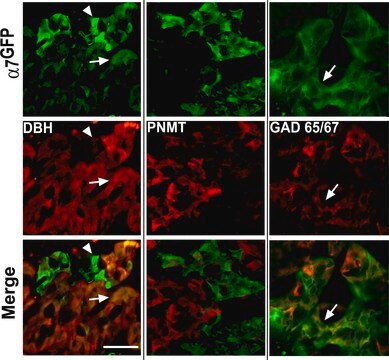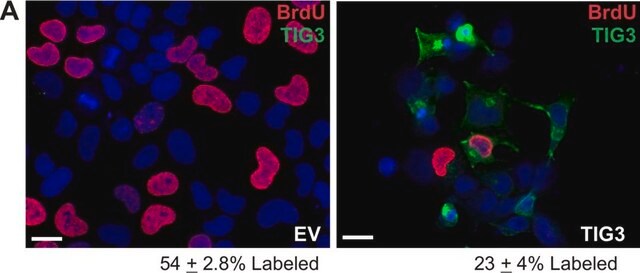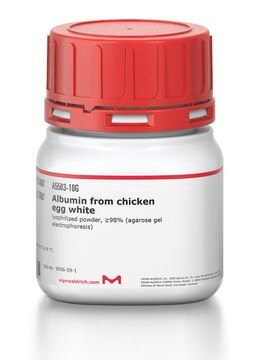B6804
Monoclonal Anti-Bacterial Alkaline Phosphatase (BAP, PhoA) antibody produced in mouse
clone BAP-77, ascites fluid
Sinônimo(s):
Monoclonal Anti-Phosphatase, Alkaline, bacterial
About This Item
Produtos recomendados
fonte biológica
mouse
Nível de qualidade
conjugado
alkaline phosphatase conjugate
forma do anticorpo
ascites fluid
tipo de produto de anticorpo
primary antibodies
clone
BAP-77, monoclonal
peso molecular
antigen ~50 kDa
reatividade de espécies
bacteria
técnica(s)
indirect ELISA: suitable
western blot: 1:20,000 using purified Escherichia coli BAP
Isotipo
IgG1
Condições de expedição
dry ice
temperatura de armazenamento
−20°C
modificação pós-traducional do alvo
unmodified
Descrição geral
Imunogênio
Aplicação
Ações bioquímicas/fisiológicas
Exoneração de responsabilidade
Não está encontrando o produto certo?
Experimente o nosso Ferramenta de seleção de produtos.
Código de classe de armazenamento
12 - Non Combustible Liquids
Classe de risco de água (WGK)
WGK 1
Ponto de fulgor (°F)
Not applicable
Ponto de fulgor (°C)
Not applicable
Certificados de análise (COA)
Busque Certificados de análise (COA) digitando o Número do Lote do produto. Os números de lote e remessa podem ser encontrados no rótulo de um produto após a palavra “Lot” ou “Batch”.
Já possui este produto?
Encontre a documentação dos produtos que você adquiriu recentemente na biblioteca de documentos.
Nossa equipe de cientistas tem experiência em todas as áreas de pesquisa, incluindo Life Sciences, ciência de materiais, síntese química, cromatografia, química analítica e muitas outras.
Entre em contato com a assistência técnica






